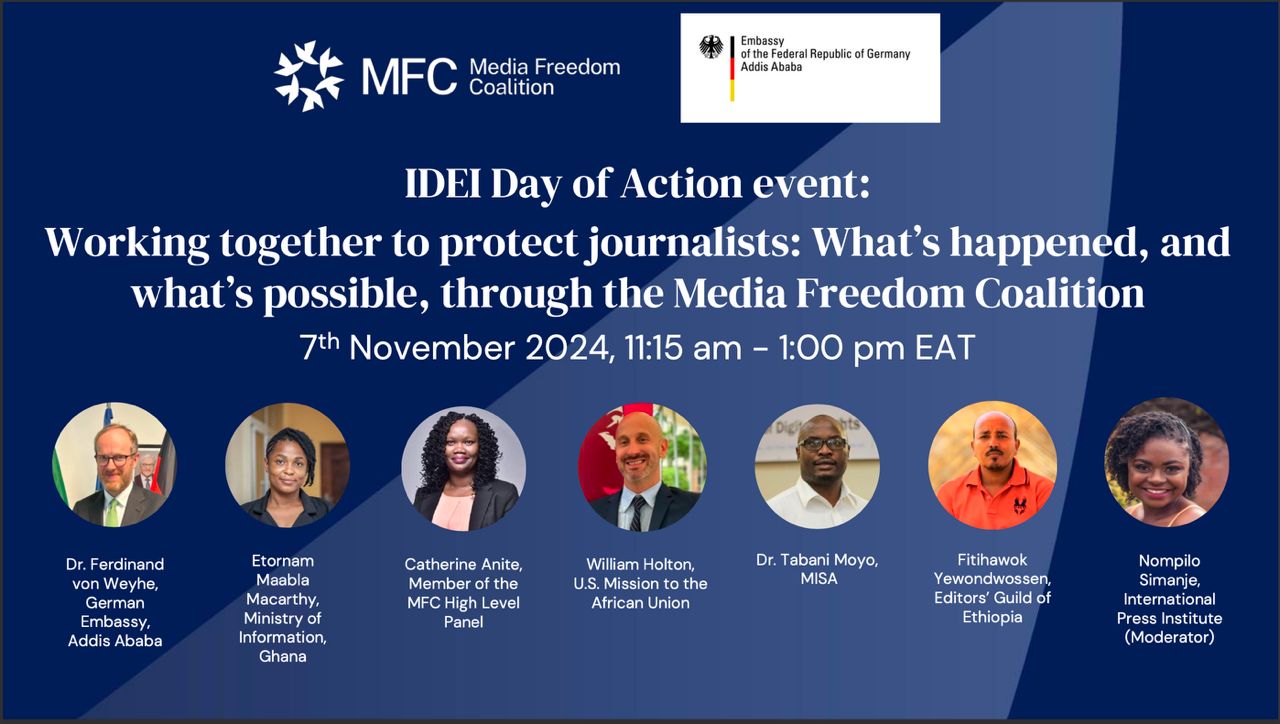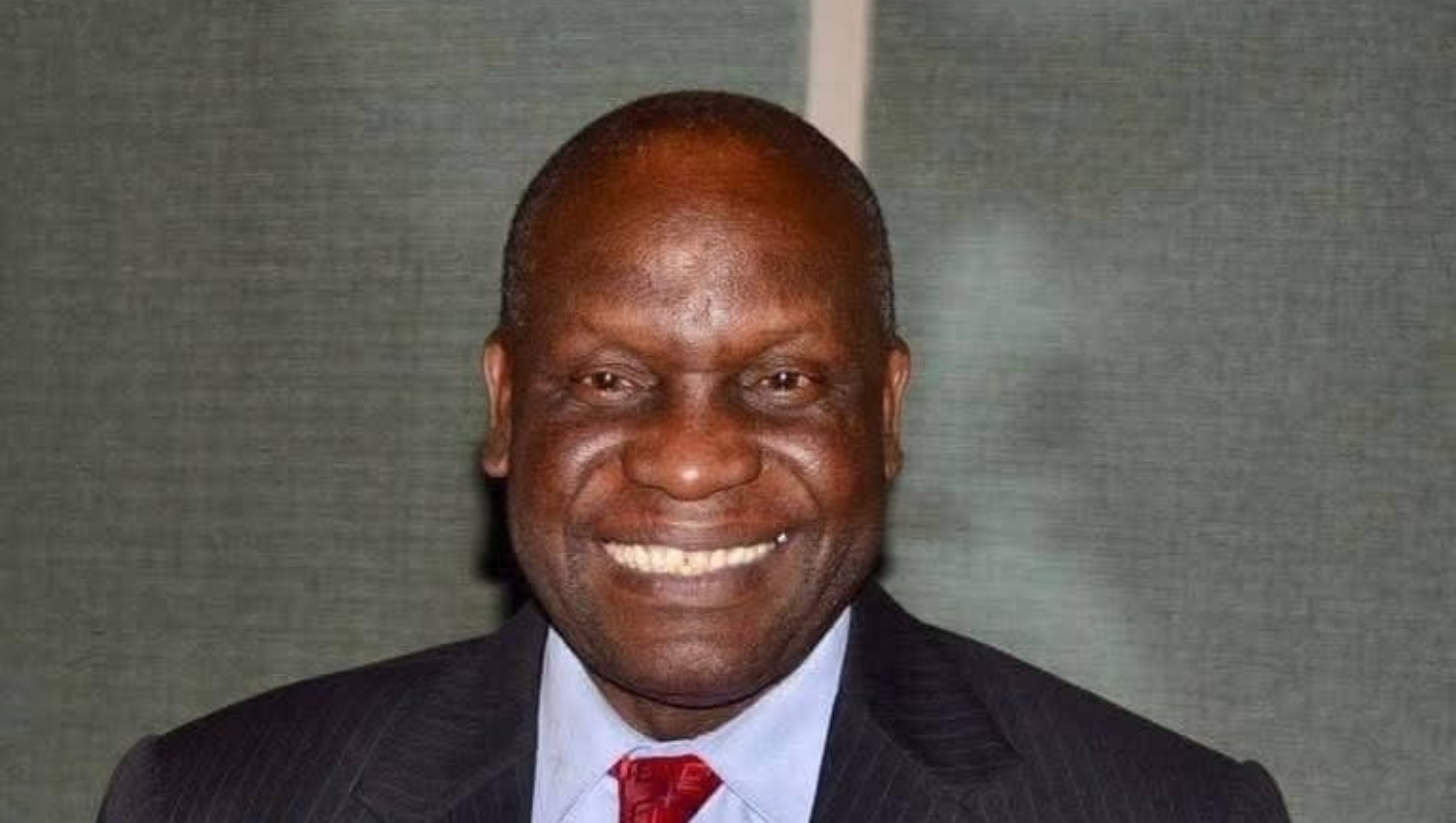IFEX and MISA Regional Office have called for organic collaboration and escalation of solidarity to advance the four pillars of the UN Plan of Action on the Safety of Journalists and the Issue of Impunity.
The UN Plan of Action is anchored on four fundamental pillars of Prevention, Protection, Prosecution and Partnerships.
Speaking at the Global commemoration of the International Day to End Impunity for Crimes against Journalists (IDEI) at the African Union (AU) headquarters in Addis Ababa, Ethiopia, MISA Regional Director and IFEX Convenor, Dr Tabani Moyo said:
“We have seen organic collaborations taking place broadly in Africa and Southern Africa, where we do most of our work as MISA. When these organic collaborations take place, they last and produce tangible results as the local actors own the processes.
“In such circumstances, we need to define collaboration to flatten the power relations between the small and medium organisations rooted in the communities and the international organisations, mainly from the global north.
“This is why at IFEX, we are finalising the principles and collaboration framework to enhance stronger collaborations that influence lasting change.”
The event which was held on 6 -7 November 2024 was hosted by the AU and co-organised by UNESCO and the AU under the theme: Safety of Journalists in Crises and Emergencies.
IDEI is commemorated annually on 2 November to spotlight the level of impunity for crimes against journalists.
Dr Moyo chronicled MISA’s work in the consultative processes on the UN Plan of Action’s 10th Anniversary in Southern Africa in 2022.
“MISA led the regional review of the UN Plan of Action on the Safety of Journalists for Southern Africa, which focused on raising awareness and standard setting.
“Raising awareness is a crucial advocacy intervention as only through awareness are we likely to know the full extent of media violations and how deep the issue of impunity is.”
He said raising awareness is the cornerstone of evidence-based advocacy and in that regard, journalists will know where to report and be willing and able to report cases of violations.
Dr Moyo noted there was no agreement on what constitutes media violations in terms of standard setting, with different regions or even countries reporting differently.
This, he said, needs to be corrected in monitoring, documenting, and reporting media violations. Southern Africa produces the annual State of Press Freedom in Southern Africa Report.
“Our standard for reporting media violations is based on metadata from SDG 16.10. While SDG 16.10 may not be fully reflective of media violations, at least it gives us a platform to build upon. I know other efforts aimed at standardising reporting are hamstrung by lack of funding.
He said support partners and embassies in the Media Freedom Coalition (MFC) should remain committed to supporting media development, small and local media in the age of global conflict, shifts in geopolitics, rise in the right-wing polity, and inward-looking approaches globally.
Dwindling support for media development weakened the ecosystem in the face of information disorders, he said. He highlighted the strategic role of embassies and multilateral institutions such as the African Union and the United Nations in pushing for the domestication of the Action Plan by UN member states.
Dr Moyo was part of the seven-member panel tackling the topic: Working together to protect journalists: What happened, and what’s possible through Media Freedom Coalition.
The panel discussion was on the 7th of November 2024 where he joined other panelists: Dr Fredinand von Weyhe, Germany Embassy Addis Ababa; Etornam Maabla Macarthy, Ministry of Information Ghana; Catherine Anite, member of the MFC High-Level Panel; William Holton, U.S. Mission to African Union and Fitihawok Yewondwossen, Editors’ Guild of Ethiopia.
The discussion was moderated by Nompilo Simanje, International Press Institute.
The MFC and the Embassy of the Federal Republic of Germany, Addis Ababa, organised the panel, showcasing collaborative methods of protecting media freedom.
The MFC – a partnership of 51 states that work to promote media freedom at home and abroad – has just marked its fifth anniversary. Since its formation, it has become an essential platform for governments to work with civil society, legal experts, UNESCO and others to advance the safety of journalists.
MISA Regional Communique









